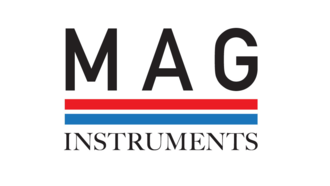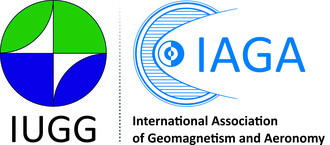
Short course on the use of magnetic susceptibility in Earth Sciences
Venue: Trakošćan, Croatia, August 26th – 28th 2022 (A pre-Castle meeting workshop)
The short course will cover the fundamentals and use of magnetic susceptibility in different areas of the Earth Sciences. The main focus is on 1) the theory of magnetic susceptibility in rocks, unconsolidated sediments and soils, 2) the use of magnetic susceptibility in environmental studies and 3) measurements and modelling of magnetic susceptibility and its anisotropy.
If possible – a short field trip (including measurement demonstration) will be organized during program to the fossil volcano Gaveznica near Lepoglava, which is built from andesite, volcanic breccia and tephra.
Course instructors:
- Bjarne Almqvist, Department of Earth Sciences, Uppsala University, Sweden
- Erwin Appel, Department of Geosciences, University of Tuebingen, Germany
- Andrea Biedermann, Institute of Geological Sciences, University of Bern, Switzerland
- Martin Chadima, AGICO, Czech Republic
- Stanislav Frančišković-Bilinski, Division for Marine and Environmental Research, Ruđer Bošković Institute, Croatia
- Frantisek Hrouda, AGICO/Charles University, Czech Republic
- Tadeusz Magiera, Institute of Environmental Engineering, Polish Acadeny of Sciences, Poland
- Eduard Petrovsky, Institute of Geophysics, Czech Academy of Sciences, Czech Republic
Day 0 (August 26)
- Arrival to Zagreb airport or train station – transfer by bus to Trakošćan.
Day 1 (August 27)
-
Welcome – introduction to the short course 9.00-9.30
Dr. Stanislav Frančišković-Bilinski, Dr. Bjarne Almqvist - Morning session (9.30-12.00, with 30 min coffee break)
- Introduction to magnetic susceptibility and its use in the Earth Sciences - theory behind magnetic susceptibility (Prof. Dr. Eduard Petrovsky)
- Topics in this lecture include the physical origin of magnetic susceptibility in minerals and rocks, temperature dependence of ferromagnetic and paramagnetic susceptibility, field and frequency dependence of magnetic susceptibility, and an introduction to measurements of magnetic susceptibility, with a brief description of available instrumentation.
- Lunch, 12.00-13.00
- Afternoon session (13.00-16.00, with 30 min coffee break)
- Magnetic susceptibility in environmental magnetism (Prof. Dr. Erwin Appel and Prof. Dr. Tadeusz Magiera). Topics in this session will include the use of magnetic susceptibility in paleoclimate and paleoenvironmental studies and environmental pollution studies. The session will cover interpretation of the magnetic susceptibility of environmental materials, with case study examples.
Day 2 (August 28)
- Morning session (9.00-12.00, with 30 min coffee break)
- Applications of anisotropy of magnetic susceptibility (AMS) in rocks and unconsolidated sediments (Dr. Martin Chadima, Prof. Dr. Frantisek Hrouda).
- The morning session focuses on case studies and examples of interpretation of magnetic susceptibility and its anisotropy of rocks and unconsolidated sediments in different geological environments. Applications will cover for example the use of AMS to understand deformation in structural geology and tectonics studies, development of flow fabrics in magmatic rocks (plutons, dykes and sills), and depositional processes in sedimentary basins and for loess.
- Lunch, 12.00-13.00
- Afternoon session (13.00-16.00, with 30 min coffee break)
- Modelling magnetic anisotropy from single crystal properties and rock fabrics (Prof. Dr. Andrea Biedermann, Dr. Bjarne Almqvist). Topics in this session will cover magnetic susceptibility of single crystals and theory behind modelling methods to predict magnetic susceptibility and AMS in rocks. The second part of the afternoon will present different techniques to measure magnetic anisotropy, including high field methods and anisotropy of magnetic remanence.



